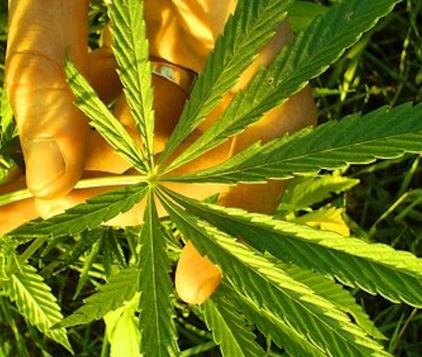A fresh push to legalize marijuana in Hawaii is gaining momentum, with a new sweeping bill introduced last week. Lawmakers behind the effort are hoping 2025 is the year the state finally greenlights adult-use cannabis, merging regulations for medical marijuana and hemp into a single oversight agency. The proposal follows previous efforts that stalled in the House but now have renewed backing from key officials.
What’s in the Bill? A Deep Overhaul of Cannabis Laws
The proposed legislation, introduced by House Judiciary and Hawaiian Affairs Chair David Tarnas (D) and Senate Health and Human Services Committee Chair Joy San Buenaventura (D), aims to regulate adult-use, medical marijuana, and hemp under one roof: the Hawaii Cannabis and Hemp Office.
If passed, the law would allow adults 21 and older to possess up to an ounce of cannabis and five grams of concentrate by January 1, 2026. Home cultivation would also be permitted, with residents allowed to grow up to six plants per person, with a household cap of 10 plants.
Retail cannabis sales would come with a 14% tax for recreational purchases, while medical patients would continue to pay just 4%. Revenue generated would support social equity programs, public health initiatives, and law enforcement efforts to crack down on illicit sales.

Stronger Backing This Time Around
Last year, a similar bill cleared the Senate but hit a dead end in the House. This time, advocates believe the chances of passage are higher.
- Hawaii’s new House Speaker, Rep. Nadine Nakamura (D), supports legalization, potentially clearing the main roadblock from previous sessions.
- Gov. Josh Green (D) has already signaled his backing, giving reform efforts a key ally in the state’s leadership.
- The new bill removes some of the most criticized provisions from last year’s proposal, making it more palatable to both lawmakers and advocacy groups.
Karen O’Keefe, director of state policies at the Marijuana Policy Project (MPP), pointed out that if the bill gets through its House committee assignments, it has a strong shot at becoming law.
Business, Regulation, and Social Equity
Beyond personal use, the legislation seeks to create a structured cannabis market with multiple business opportunities. The plan outlines a licensing process that includes:
- Cultivators, processors, retailers, and testing labs.
- Smaller-scale craft dispensaries limited to selling their own products.
- A lottery system for initial licenses, ensuring fair access.
Additionally, a social equity program would offer financial assistance, technical support, and lower licensing fees for applicants from historically disadvantaged communities. At least 30% of state revenue from cannabis taxes would be directed toward these efforts.
New Rules for Hemp and Synthetic Cannabinoids
Hemp businesses would see tighter rules, particularly when it comes to synthetic cannabinoids. The proposal prohibits artificially derived THC products while allowing the sale of hemp-derived flower under strict compliance guidelines.
Other key hemp regulations include:
| Restriction | Details |
|---|---|
| Hemp tinctures | Maximum of 30 mg THC per package |
| Edibles | Cannot resemble candy or appeal to children |
| Aerosol sprays | Banned entirely |
| Proximity rules | No hemp cultivation within 300 feet of schools or playgrounds |
These measures aim to keep hemp products distinct from regulated cannabis while preventing underage access to high-potency THC products.
Public Consumption, Employment, and Criminal Penalties
Even if marijuana becomes legal, public consumption would remain off-limits. Smoking or vaping in public spaces would result in fines of up to $130 or 10 hours of community service. Passengers caught using cannabis in a moving vehicle could face a petty misdemeanor with fines reaching $2,000.
Hawaii is also addressing cannabis-related employment protections. Government employees, in most cases, could not be fired for off-duty marijuana use. However, those in federally regulated positions or certain collective bargaining agreements would not be covered under this protection.
For those still concerned about the unlicensed market, the bill includes clear penalties:
- Selling marijuana to minors would be a misdemeanor.
- Diverting cannabis from a legal business to the illicit market would be a Class C felony.
- Butane-based extraction without a license would also carry felony charges.
Next Steps: Committee Hearings and Legislative Debate
An informational briefing is scheduled for this week in the House Judiciary and Hawaiian Affairs Committee, where lawmakers will review the proposal and consider amendments.
Industry insiders, including David Culver from the U.S. Cannabis Council, believe Hawaii is on the cusp of legalization. “We were so close last time around that I’m hopeful we see Hawaii go,” he said.
With growing support from leadership and a more refined approach, 2025 could be the year Hawaii finally joins the list of states embracing legal cannabis.
